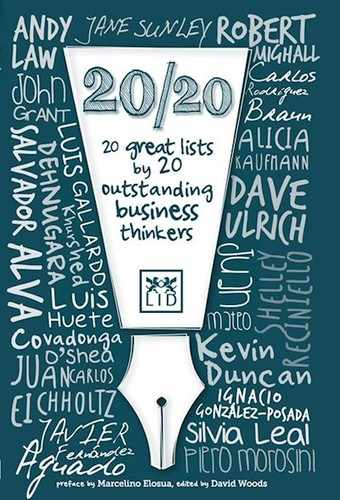FOREWORD
It takes a certain amount of chutzpah to write a book about the virtues of Not Knowing. After all, if my friends and colleagues, Diana Renner and Steven D’Souza, want you to acknowledge your ignorance and enjoy the rewards of stepping into the unknown, how can they possibly know enough about it to write a whole book, making it comprehensible to us? How can anyone be “knowledgeable” about Not Knowing?
Nevertheless, this paradoxical quest for knowing about Not Knowing has to resonate with anyone who has been in professional life, or who has even experienced being a parent. It certainly does with me. The pressure to “know” has been present throughout my professional journey.
As a young, over-educated, under-experienced political operative, I was charged with running a big chunk of my mentor’s campaign for Attorney General of Massachusetts. I had no idea what I was doing. Rather than acknowledge that to myself or my superiors, I tried to compensate by coming into the office earlier and earlier, as if somehow spending more time at the job would compensate for my ignorance. I was close to a nervous breakdown.
As a politician – an ambitious three-term-elected Massachusetts state legislator – I was expected to have the answers and to have a point of view about everything. I complied, talking authoritatively about whatever I was asked by constituents or reporters.
Then I became a journalist myself, eventually the editor of a weekly newspaper. It was my first job as a manager and, once again, I had no idea what I was doing. I had to act, to make decisions, both managerial and journalistic, and had neither the courage nor the confidence to acknowledge how much I was floundering in the Not Knowing realm and ask for help.
Finally, in my dotage, with a lot less to prove to myself or to others, I have spent the past 30 years teaching at Harvard. In that environment, where knowledge is king, I have finally been able and willing to enjoy Not Knowing and being seen as abdicating my responsibility to disseminate wisdom. The classrooms in which I teach are designed so that everyone faces the front of the room, where the professor professes, dispensing pearls of knowledge, as if the students had nothing to contribute except their deference. My best teaching, when I make the greatest contribution to the growth of my students, always comes when I enter the classroom completely empty-headed, when I am fully present and listening to them, rather than to the voices in my head that are full of teaching plans and assumed truths.
As a parent, I have experienced that wonderful and difficult moment when your child suddenly realizes that you do not know everything, that you are not infallible, and that you make mistakes on a regular basis. I remember once yelling at my middle child, my older son, probably then about 9 years old, when he was playing baseball. I was urging him to stand closer to the home plate so that he would have a better chance of hitting the pitch. He did what I said and the next pitch hit him squarely in the arm. That was more than 30 years ago and I can still see the look on his face as he ran up the first base line, in pain, holding back the tears, bewildered that he had followed my advice and that it had caused him grief. The scales had fallen from his eyes.
As a human being, functioning in organizational life, you must have experienced both the pressure on you to “Know” and the pressure you put on others, especially those in authority, to know the answers, to provide the classic functions of authority: direction, protection and order, even when they didn’t have the slightest idea about what was going on.
This book, honoring and legitimizing the space of Not Knowing is the work of liberators not Luddites, freeing us to innovate, adapt, and address the complexity, ambiguity and uncertainty of life in the 21st Century with curiosity, empathy and, yes, the courage to withstand the resistance of those who desperately hold on to the illusion that current knowledge can solve the most vexing problems.
This book is a living example of that courage, that willingness to jump off the cliff into the nothingness of Not Knowing, which is so essential if we are to make progress on the most intractable challenges we face globally and in our everyday lives.
Marty Linsky
Faculty, Harvard Kennedy School;
Co-Founder of Cambridge Leadership Associates;
Co-Author, Leadership on the Line and
The Practice of Adaptive Leadership
New York, NY March 20, 2014
